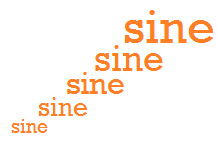Lots of Sines
 ∫
0
4
π
sin
x
d
x
+
∫
0
4
π
sin
2
x
d
x
+
∫
0
4
π
sin
3
x
d
x
+
…
∫
0
4
π
sin
x
d
x
+
∫
0
4
π
sin
2
x
d
x
+
∫
0
4
π
sin
3
x
d
x
+
…
Let I denote the numerical value of the series of integrals above. Find ⌊ 1 0 0 0 I ⌋ .
The answer is 628.
This section requires Javascript.
You are seeing this because something didn't load right. We suggest you, (a) try
refreshing the page, (b) enabling javascript if it is disabled on your browser and,
finally, (c)
loading the
non-javascript version of this page
. We're sorry about the hassle.
1 solution
Discussions for this problem are now closed
It would be helpful to mention the result used (MCT) in exchanging the order of summation and integral in the first line.
Good point: i was being a bit too casual there. The edit has been made. :)
By way of the Monotone Convergence Theorem , we can write the sum of integrals as
I = n = 1 ∑ ∞ ∫ 0 4 π sin n ( x ) d x = ∫ 0 4 π n = 1 ∑ ∞ sin n ( x ) d x .
Now for any x in [ 0 , 4 π ] we have that ∣ sin ( x ) ∣ < 1 , and thus
n = 1 ∑ ∞ sin n ( x ) = 1 − sin ( x ) sin ( x ) = 1 − sin ( x ) sin ( x ) ∗ 1 + sin ( x ) 1 + sin ( x ) =
cos 2 ( x ) sin ( x ) + sin 2 ( x ) = cos 2 ( x ) sin ( x ) + cos 2 ( x ) 1 − cos 2 ( x ) = cos 2 ( x ) sin ( x ) + sec 2 ( x ) − 1 .
The indefinite integral of this expression (without the constant) is
sec ( x ) + tan ( x ) − x ,
where the substitution u = cos ( x ) was used to evaluate the integral of the first term. Evaluating this last expression from x = 0 to x = 4 π gives us the solution
I = ( 2 + 1 − 4 π ) − ( 1 + 0 − 0 ) = 2 − 4 π = 0 . 6 2 8 8
to 4 decimal places, and thus ⌊ 1 0 0 0 I ⌋ = 6 2 8 .